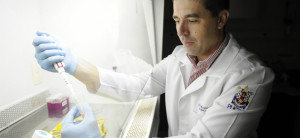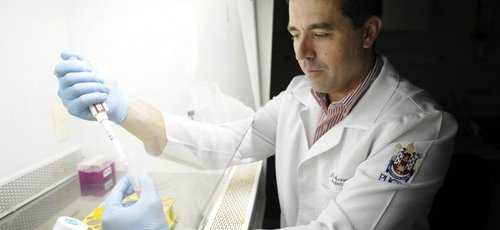Evaluation of migration and neurodifferentiation of induced pluripotent stem cells (iPS) in patients with cortical dysplasia
Project Coordinator: Jaderson Costa da Costa, MD, PhD
Researcher: Daniel Marinowic, PhD
Summary of the work: Cortical dysplasia is one of the most frequent forms of malformations of cortical development. Changes in cell traffic are present in several neurological diseases, including medication-refractory epilepsy and dysplasias. The reprogramming of adult somatic cells is an attractive and promising approach due to the possibility of in vitro studies of complex genetic diseases that are still not well understood. Direct cell reprogramming through the addition of four genes (Oct4, SOX2, KLF4 and c-Myc) in somatic cells, generate iPS, being very similar to embryonic stem cells, presenting the same characteristics of self-renewal and differentiation potential .
The creation of in vitro models using iPS has already been described in several pathologies related to the central nervous system. The objective of the present work is to establish a cellular model of Refractory Epilepsy and Cortical Dysplasia through the generation of induced pluripotent stem cells (iPS) from affected patients' fibroblasts, making it possible to investigate the mechanisms involved in embryonic neurogenesis.
Check out the published article on the topic:
* Photo: Gilson Oliveira / Photographic Archive / ASCOM / PUCRS



